The 7 Recycled Shoe Brands Helping Us Create an Eco-Friendly Wardrobe
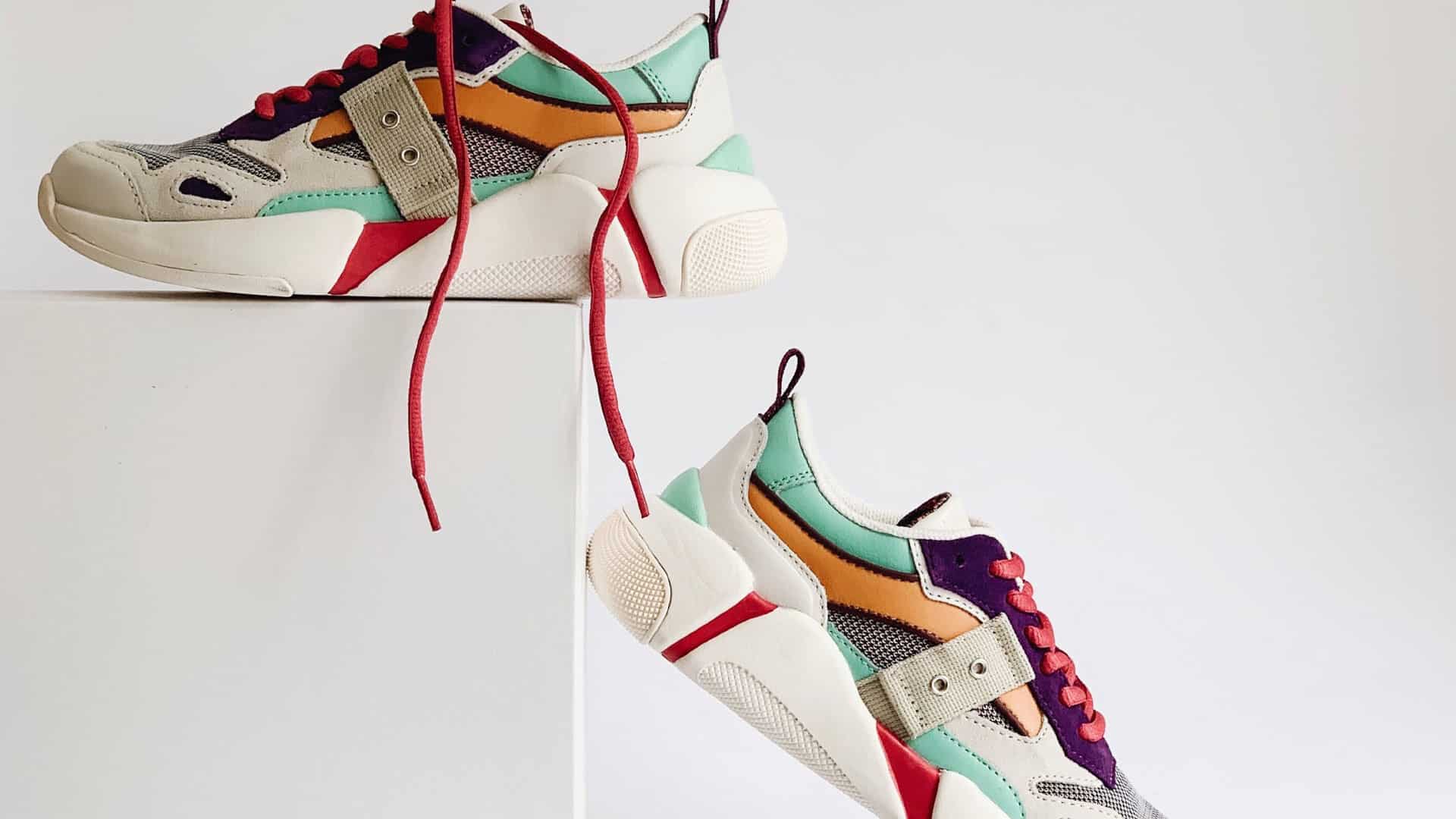
The fast fashion industry is worth $2.4 trillion annually, making it one of the biggest industries on the planet, and its carbon footprint is even bigger..
Fast fashion is the most polluting industry on the planet, with textile production alone releasing 1.3 billion tons of CO2 per year—more than all aviation and shipping combined.
At current rates, this industry will take up 26% of the global carbon budget by 2050. After agriculture, fast fashion is also the second biggest polluter of clean water on the planet, due to toxic run off created by cheap dyes and chemical heavy manufacturing processes.
Over the past two decades, clothing has become more and more disposable. From 2000-2015 the number of times a garment was worn before it was thrown out reduced by 36%, and North Americans send 9.5 million tons of usable clothes to landfill every year.
Fast Fashion Also Exploits Humans
Apart from the environmental impact, the fashion industry is also one of the most exploitative—garment workers are some of the lowest-paid workers in the world, and have no rights or protections. 1 in 6 people globally work in the garment industry, and only 2% of them earn a living wage.
The Footwear Industry’s Role In This Situation
While fast fashion as a whole produces somewhere in the region of 10% of global greenhouse gas emissions, footwear production creates 1.4%.
23 billion pairs of shoes are made each year, (88% of which are produced in Asia by low paid workers) and your average pair of trainers produces over 13kg of CO2 emissions over their lifecycle, yet only 1 in 3 footwear companies have a sustainability plan of any description in place.
The lion’s share of that CO2 comes from the manufacturing process, as shoes are produced from plastic and plastic-like materials which are derived from petroleum and are very carbon-intensive.
Some fashion companies try to appear greener by switching to using cotton manufacturing fabrics rather than plastic, but because of the amount of water (10-20,000l for 1kg of cotton clothing) and land needed to grow cotton, and the often heavily chemicalised treatment process, this is hardly a sustainable alternative.
Circular Fashion: A Great Solution For The Problems of Fast Fashion
Instead of supporting the fast fashion industry which even at its greenest continually exploits natural resources and is very wasteful, circular fashion is the way to go.
Circular fashion means that waste and pollution are designed out: materials are used and reused as much as possible, natural systems are regenerated rather than continually exploited, and waste is avoided at the end of a product’s lifestyle by making it into something new.
With shoes, in particular, this means a complete rethink in design—mass produced shoes are usually made with types of glue and stitching that make them nearly impossible to recycle.
With circular fashion, when products have finally reached the end of their life they are either disposed of in a sustainable way or used to create other products.
One way you can support the circular fashion concept is to start buying recycled shoes. 85% of textiles aren’t recycled, and it takes up to 40 years for a shoe to start to decompose in landfill. Recycled shoes will use up existing waste and will also be used again at the end of their life.
The exciting thing is that they don’t solely have to be made from old shoes—they can also be made from recycled bottles, fishing nets, reclaimed rubber, and sustainable materials such as algae and cork.
7 Recycled Shoe Brands With Stylish & Eco-Friendly Footware
Although there aren’t as many as we might like to see (yet), there are a huge amount of sustainable fashion companies out there and it can be hard to know where to start choosing what company to buy from.
Here, we’ve put together a few of the best recycled shoe brands.
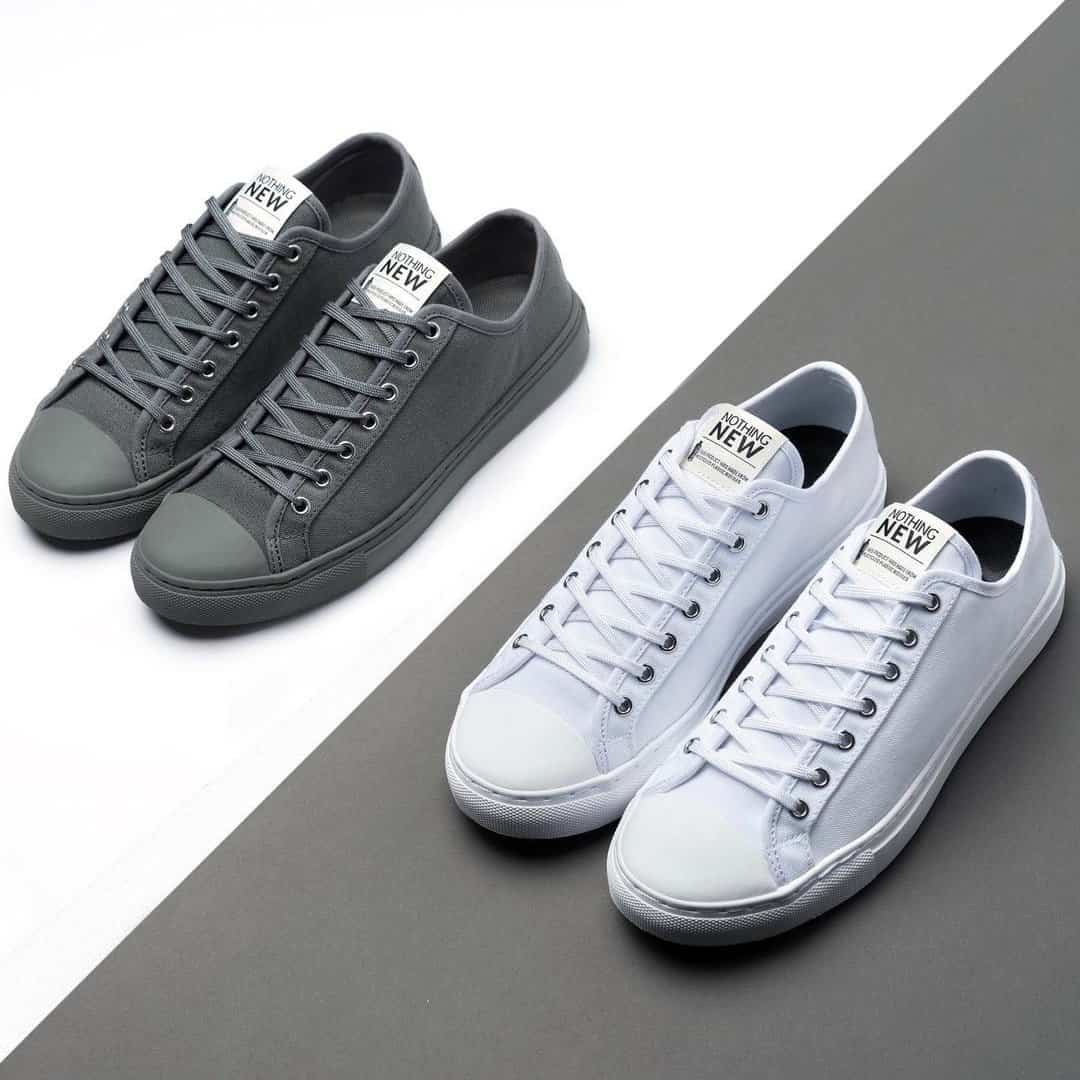
Nothing New
Nothing New Shoes make their footwear out of 100% recycled materials (get it? Nothing New?), and they’re the perfect choice if the traditional ‘eco-friendly’ aesthetic just isn’t for you. Their shoes are sleek and stylish, fulfilling the brand’s ambition of creating footwear that looked as good if not better than the fast fashion alternative. Their packaging is also made from 100% recycled materials and is recyclable too.
In order to make themselves carbon neutral, Nothing New Shoes buy carbon offsets from verified environmental groups, resulting in a net zero carbon footprint for every shoe made.
They also offer what they call a “virtuous circle” program—to make sure all their shoes meet an eco-friendly end, they encourage buyers to return your used pairs by post by offering $20 of the next pair. The returned shoes will either be disposed of sustainably or used to make more shoes.
Nothing New Shoes is a really ambitious company working hard to provide a sustainable footwear alternative to fast fashion, and also aiming to change what customers expect from the brands they shop with.
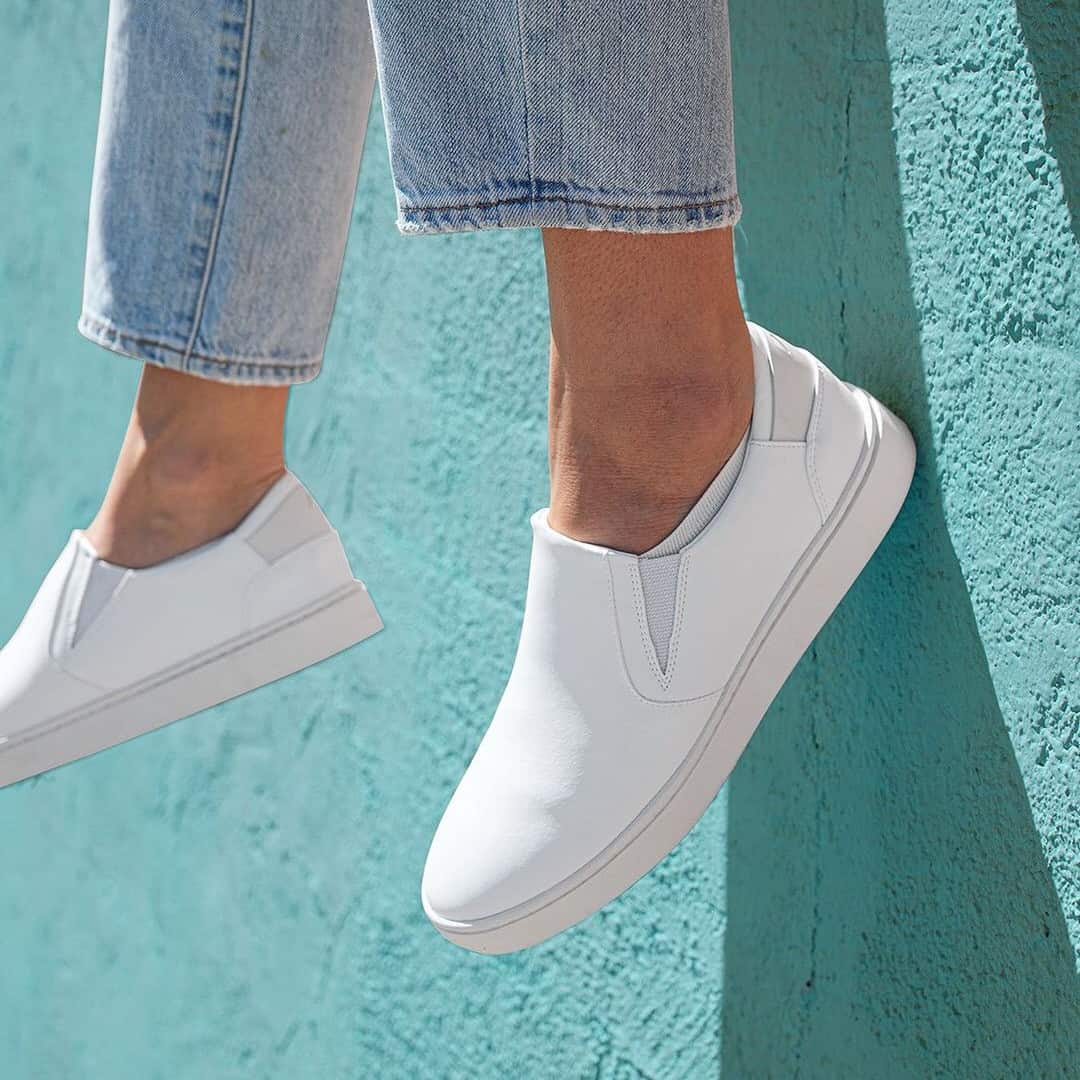
Thousand Fell
The motto of Thousand Fell is “made to last and built to recycle”, and their aim is to create a ‘library’ of sustainable materials which can be used to make shoes.
Their shoes aren’t made from 100% recyclable materials—instead, recycled bottles and rubber are incorporated into the shoes.
Other sustainable materials they use include coconut husk, locally-sourced sugar cane, palm leaf fibers from food waste, and a quartz coating which makes the sneakers water and stain resistant.
Thousand Fell’s aim is to create zero waste footwear, and they’re already well on their way; the shoes are created in a small factory which means inventory excess is low and quality is high, and materials are sourced close to the factory to minimize transport.
They also offset their carbon footprint and even replenish the water that they use to minimize their environmental impact, and they are a member of 1% for the planet. This means that they donate 1% of their profit each year to environmental and conservation projects.
They will soon be launching a platform where you will be able to track the progress of your used shoes after they’ve been sent back.
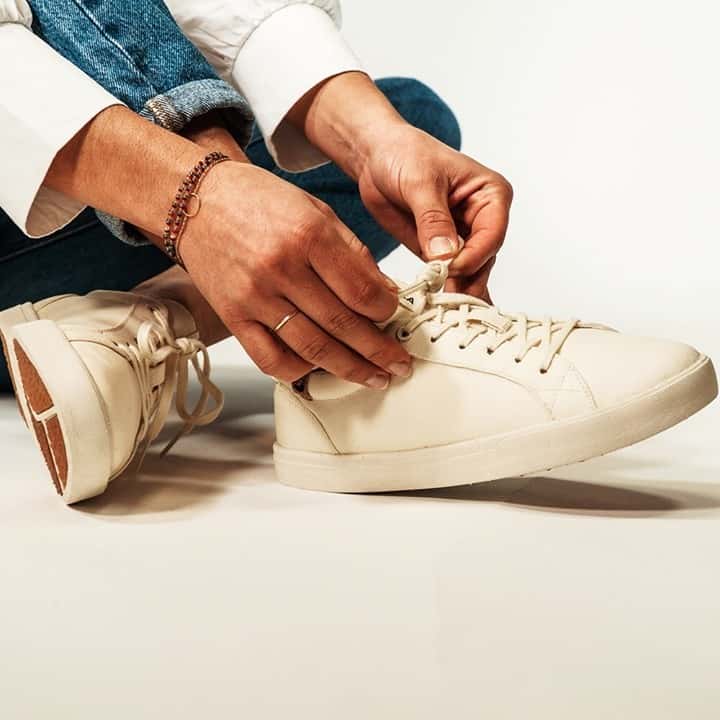
Saola
Named after one of the rarest animals on the planet, Soala donates 1% of turnover each year to MWALUA wildlife trust, 1% to Soala conservation efforts, and 1% to 1% For The Planet. Saola shoes also come very highly qualified: they are Global Organic Textile standard and Global Recycled Standard, which ensure the traceability of the materials.
The company believes strongly that each individual’s actions matter, and accumulated actions are what cause change.
Recycled materials involved in their shoes are bottles and rubber. Each shoe contains on average five recycled bottles.
Other sustainable materials such as cork and algae foam are used to make the shoes. Most interesting is the latter—rising temperatures and increasing pollution have seen a rise in harmful algae growing on lakes and oceans, disrupting eco systems. However, this can be harvested to be made into useful fabrics (in this case, the foam for insoles), and it allows a reduction of 20% in synthetic materials.
Organic cotton, which uses less than half the water used for inorganic cotton, is used for the laces while cork is naturally highly renewable – in fact, harvesting it can increase the life of the tree up to 200 years.
Saola’s shoes have a sleek but quirky style, perfect for the practical fashionista.
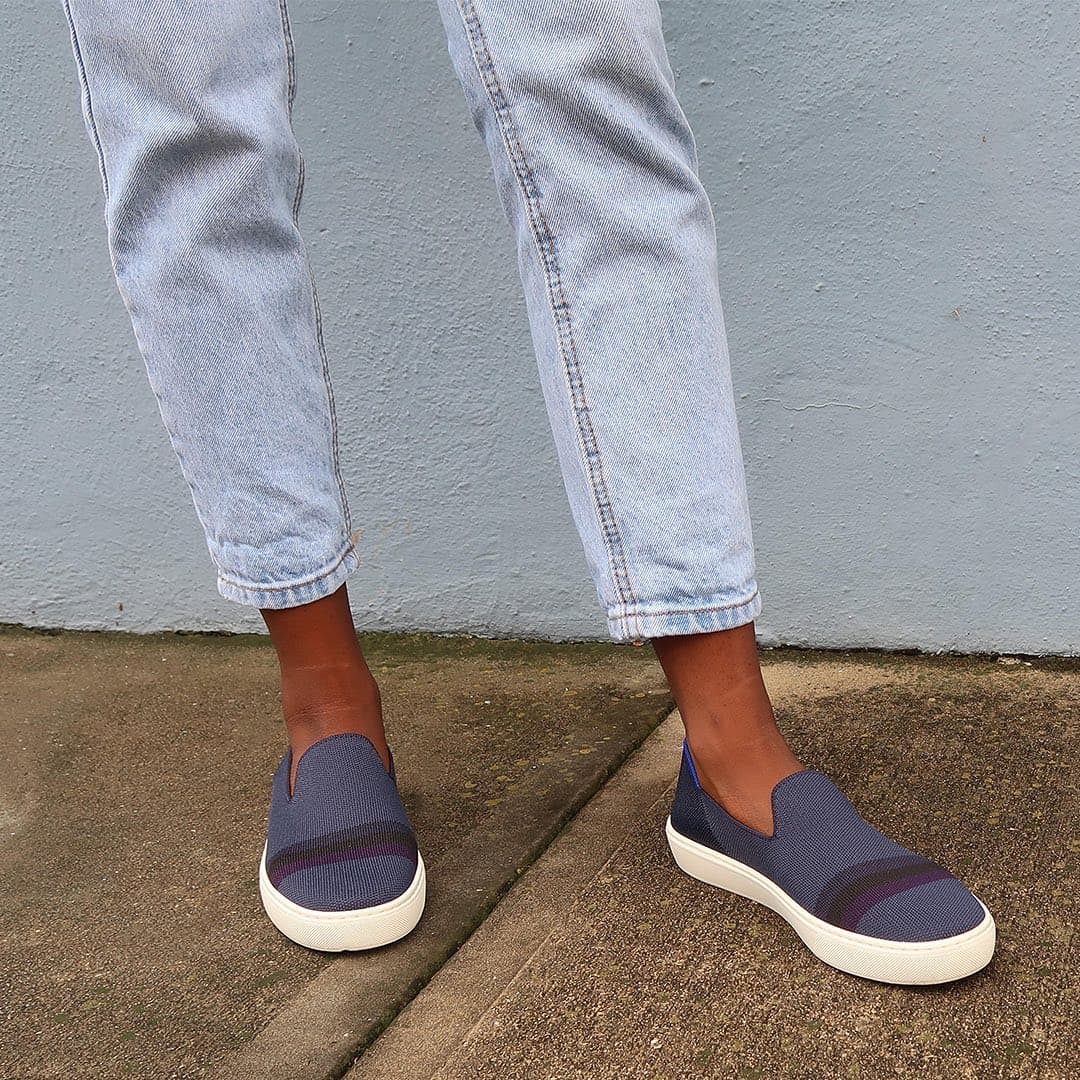
Rothy’s
Rothy’s cute and preppy ballet pump style shoes are made entirely from recycled plastic bottles, and knitted into shape by using 3D knitting technology.
The use of the 3D printing method is what gives this brand an edge, as the precise nature of the manufacturing process ensures minimal fabric waste.
The body of the shoes is made from thread created from recycling bottles, and the soles are made either from recycled rubber or durable vegan leather, and every pair is fully machine washable.
The shoes’ packaging is also fully recyclable (with a biodegradable ribbon), and Rothy’s offset their carbon emissions by partnering with Envira Amazonia Project. Added to that, the brand also use recycled marine plastics in their bag range, meaning they contribute to combating the waste crisis on two fronts.
Rothy’s pumps come in all patterns and colors and make a unique but understated fashion statement.
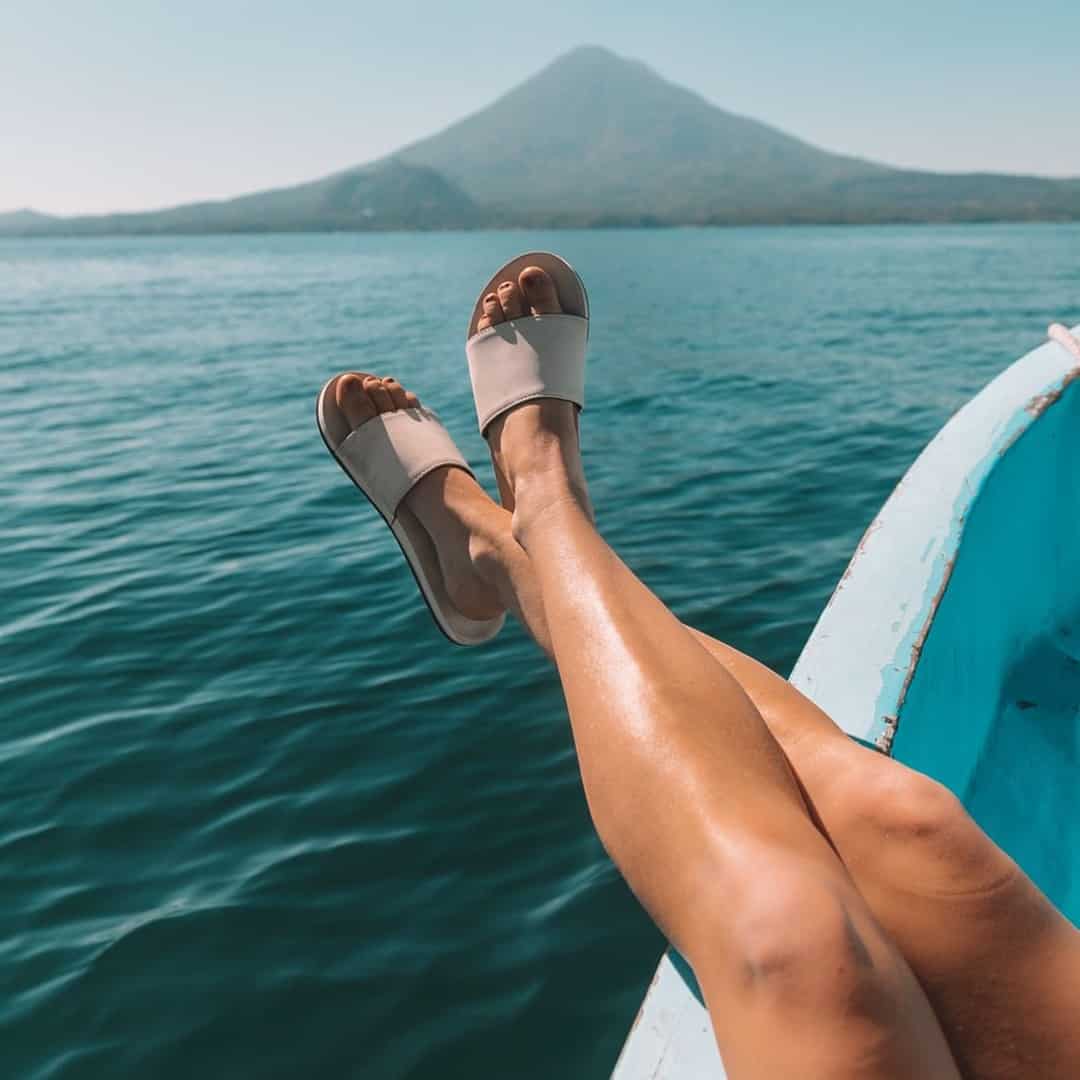
Indosole
Attacking a more specific problem than the other brands so far, Indosole’s recycled shoes are made from old tires.
There are 1.5 billion tires thrown away each year. Not only do they create a waste problem, since they take thousands of years to decompose, but they can also become breeding grounds for bugs like mosquitoes which harbor dangerous diseases.
Inosole’s shoes are all of the beach variety, offering a range of flip flops and slip-ons that are durable, grippy and stylish, ideal for slippery poolsides and coastlines Not to mention much more long lasting than your usual foam flip flops. They’re also designed for comfort, with great arch support.
As well as the recycled-tire soles, Indosole’s shoes feature a comfortable layer of ethically sourced Indonesian rubber, and a custom-made fabric for the straps which uses minimal water. None of this or any of the dyes used cause any toxic run off or environmental damage.
Finally, Indosole’s are a certified B Corp, which means they meet the highest standards of environmental and social consciousness.
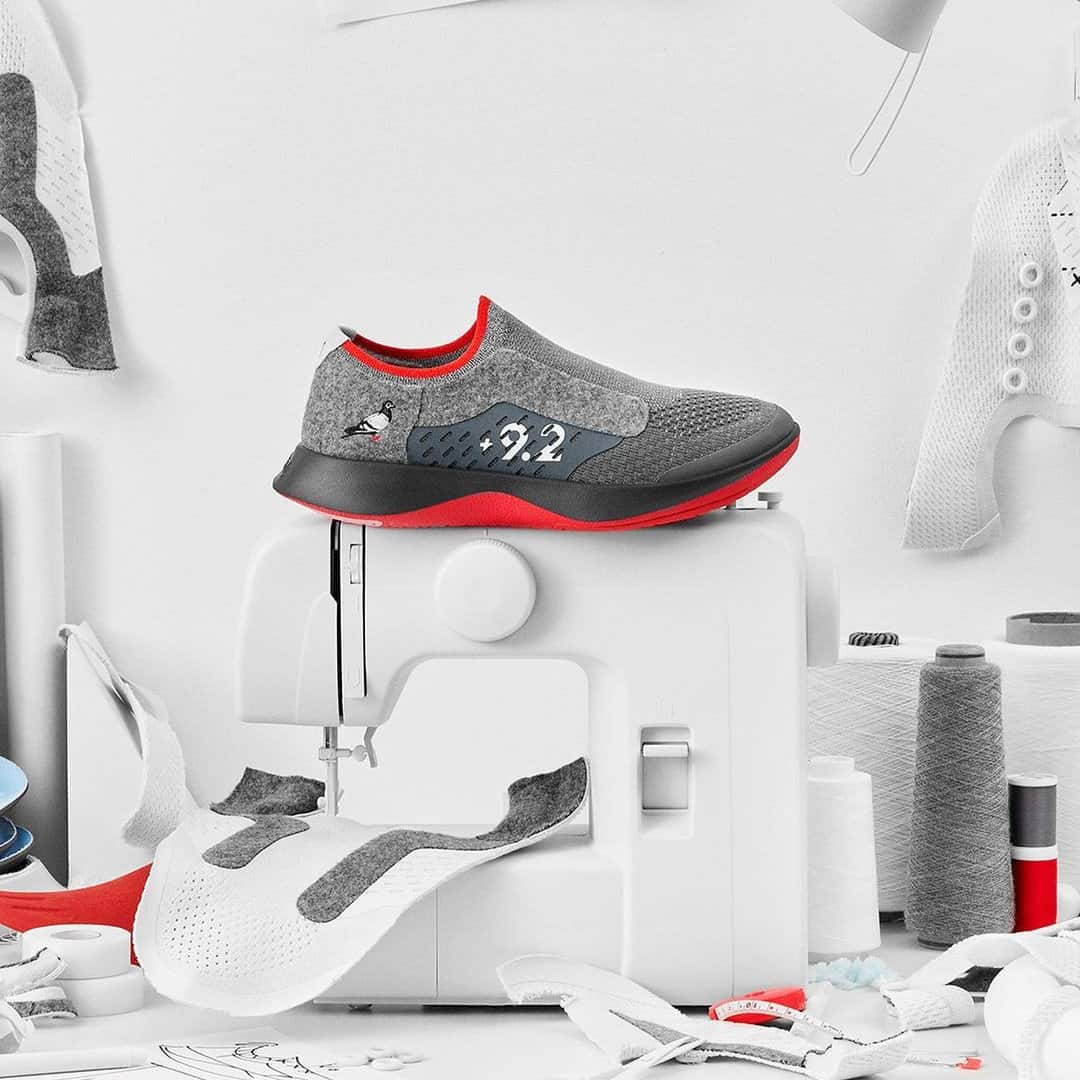
Allbirds
Allbirds’ unusual wood-and-wool blend shoes are made from 100% planet friendly materials. The body is made from ethically sourced wool and wood-based fiber, the insoles from sugar cane and the shoelaces are made from recycled bottles. Even the packaging made from recycled cardboard.
Their tree-based fiber needs 95% less water than cotton to grow and manufacture, and their sugar cane based insoles are completely sustainable—the waste sugar cane is even used to fertilize the next year’s crop.
Their signature material Trino (a blend of merino wool and wood) is not only sustainable and stylish, it’s actually naturally odor-reducing as well—always a good thing in a shoe.
In terms of recycled materials, there are definitely brands that have waded deeper into the recycled materials lake. Nevertheless, each pair of Allbirds laces is made from one recycled bottle, and that fact combined with their undeniably sustainable ethos (they are a certified B Corp) and stylish products meant they just couldn’t be left off our list.
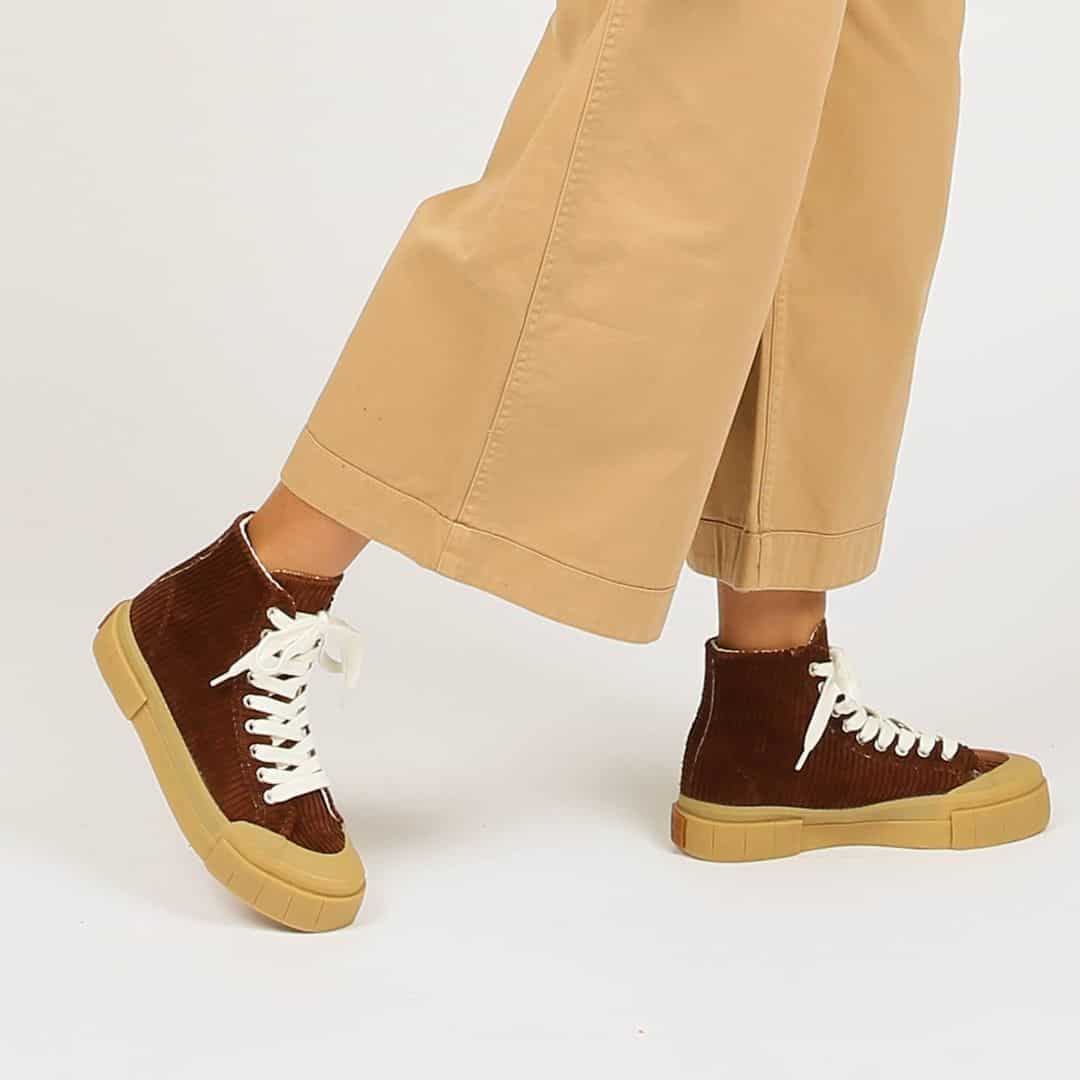
Good News
Another brand in the reclaimed rubber camp, Good News shoes’ soles are made from recycled car tires and old shoes, which can be recycled again at the end of the shoe’s lifecycle to create another sole.
The insoles also make use of recycled rubber, made from a combination of this and castor oil to create a light and comfortable foam.
The organic cotton used for the body of the shoes uses 91% less fresh water than non-organic cotton, and on top of that all dyes used in production are certified as non-toxic, meaning they don’t contribute to water pollution.
As a little bonus, the mailing bag is 100% home compostable, and all packaging is 100% recycled and recyclable.
This brand also has a fantastic social conscience, working with charities to provide shoes to migrants and refugees, as well as with the United Shoe Recycling Company which encourages people to dispose of old shoes and clothes responsibly.
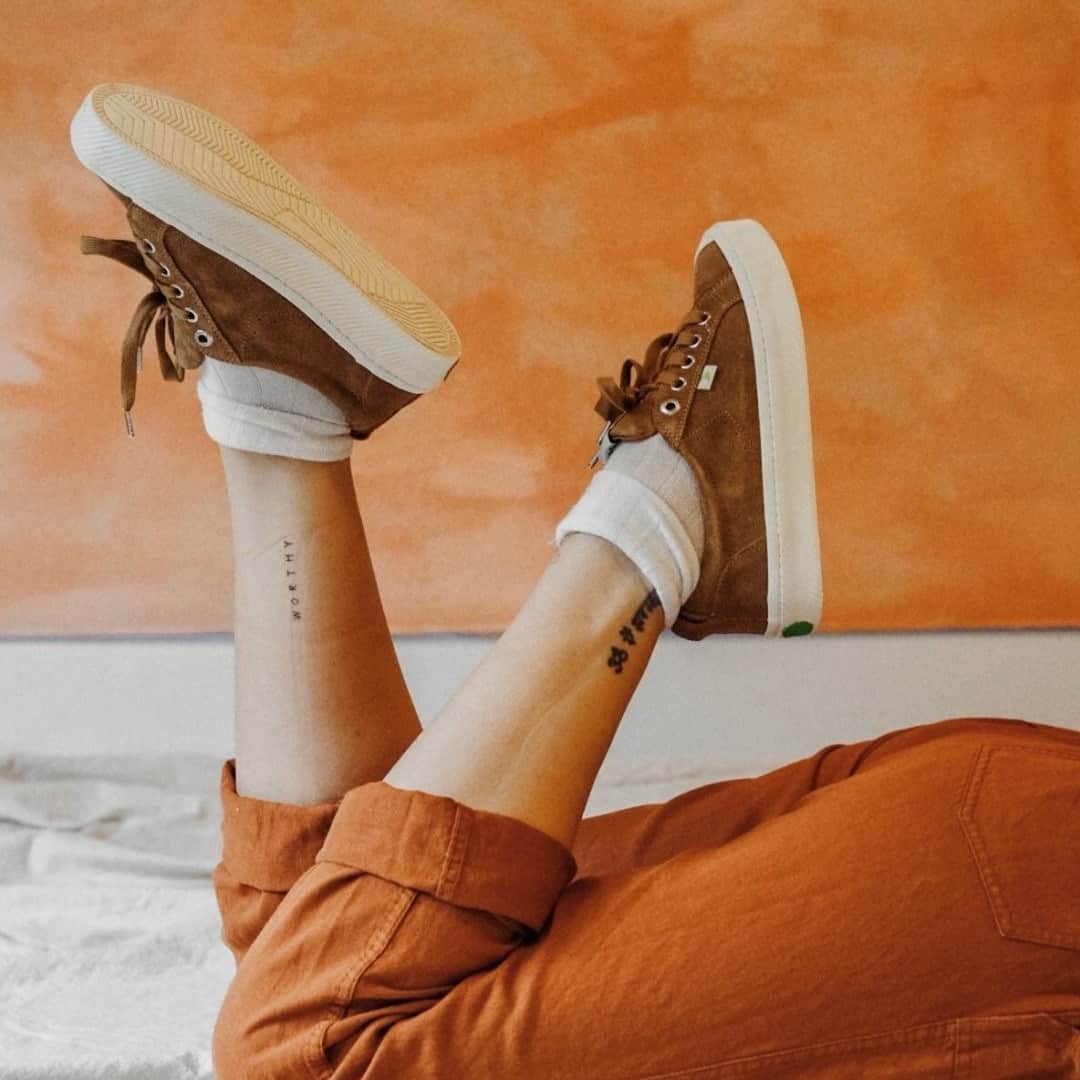
Cariuma
Cariuma describe their shoes as “good-looking, crazy comfy and consciously made.” What more could you want?
Amongst a whole host of other sustainably sourced and renewable materials, Cariuma have made sure that the “vast majority” of the plastic they use in their shoes is recycled PET (recycled bottles). It is also Global Recycling Standard certified.
Among the other materials used to make their timelessly designed shoes are sustainably sourced natural rubber, self-renewing bamboo and organic petroleum alternative mamona oil.
Adding to their sustainability credentials, Cariuma plant a pair of trees (of varying species to maintain biodiversity) in the Brazilian rainforest for every pair of shoes they sell, as well as partnering with other eco-minded brands like CarbonLite Recycling and Brick.
They also take back their used sneakers, and donate them to charities which provide shoes for underserved communities, and support entrepreneurs in developing countries.
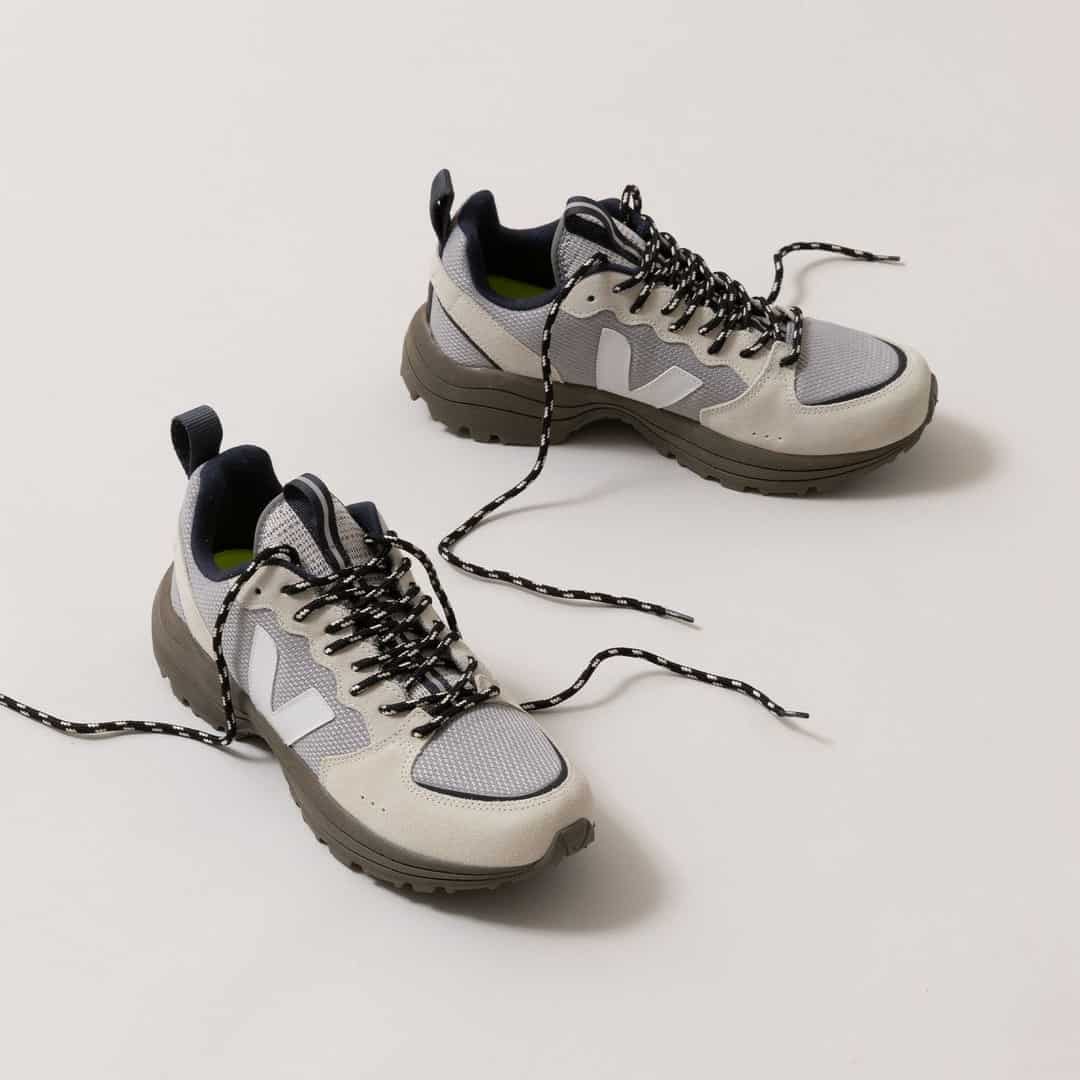
Veja
Veja’s stylish and comfortable sneakers are filled to the brim with recycled materials. They use waste cotton and jute, which they recycle into anti-static “J-Mesh”, and recycled bottles, textiles and polyester.
Their other trademark fabric, “B-mesh”, is made entirely from recycled PET plastic, and on average it takes about 3 recycled bottles to make one pair of shoes. Rexyxled jersey fabric is also used for the lining of some of the brand’s shoes.
A particular feature of Veja is their attitude to their supply chain; through analyzing the practices of making sneakers, they’ve created their own supply and manufacture process which creates a positive impact at each phase of production.
They also provide complete transparency about their supply chain and process, meaning you can feel confident that when you buy from them. What you see really is what you get.
These are only a few top brands picked from the world of sustainable fashion, but each one os a great option to move away from fast fashion – from certified B corps like Indosoles to quirky startups like Allbirds, there’s a sustainable style for everyone on this list.


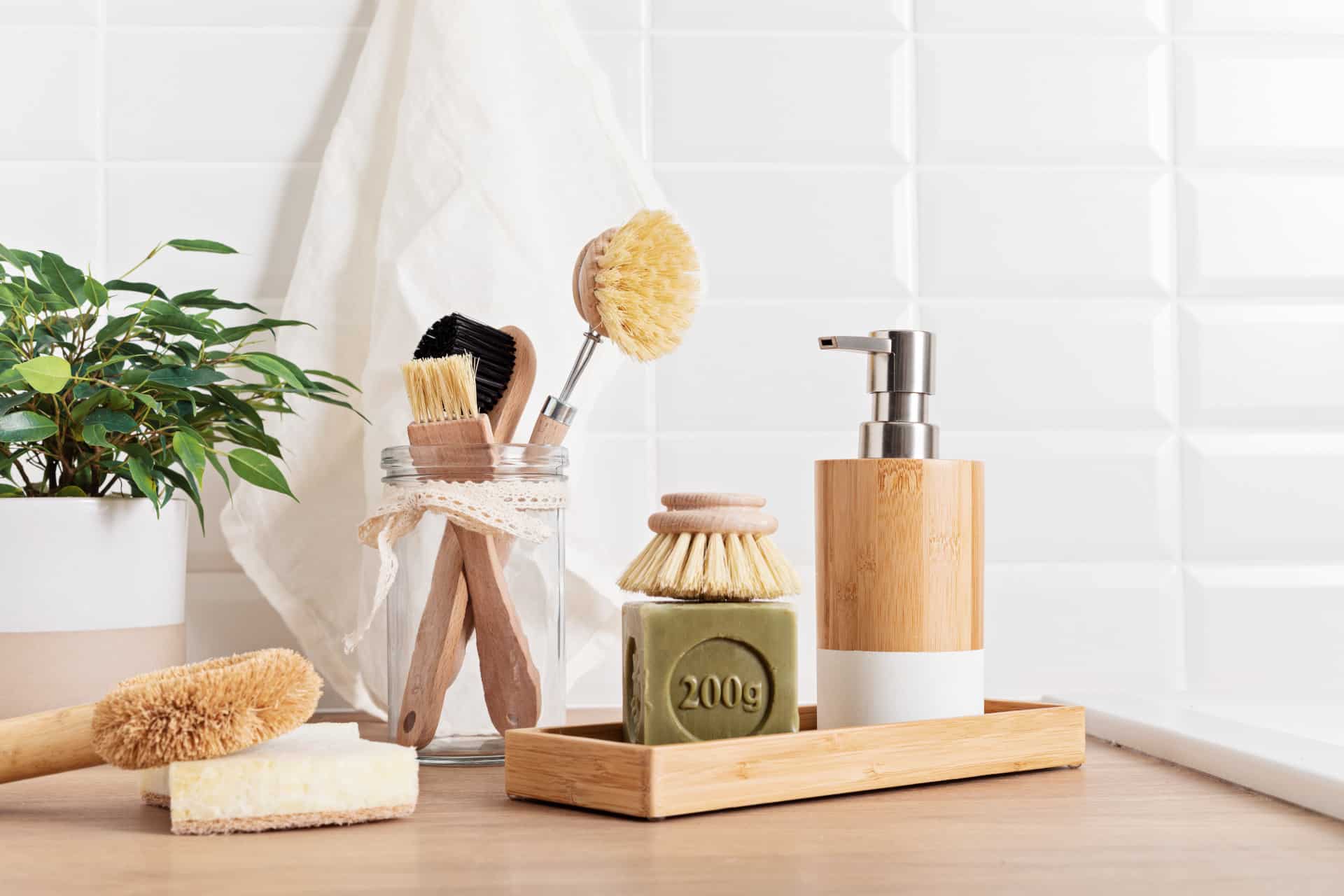
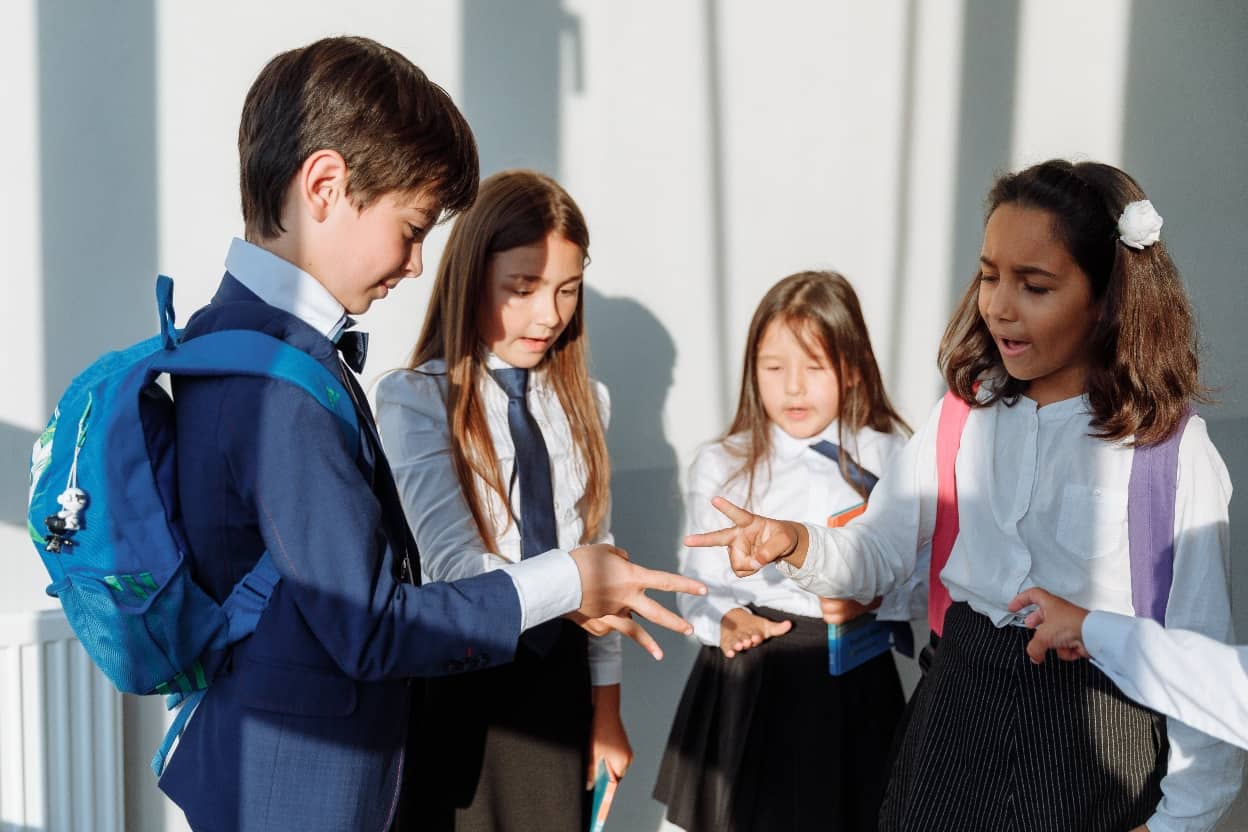
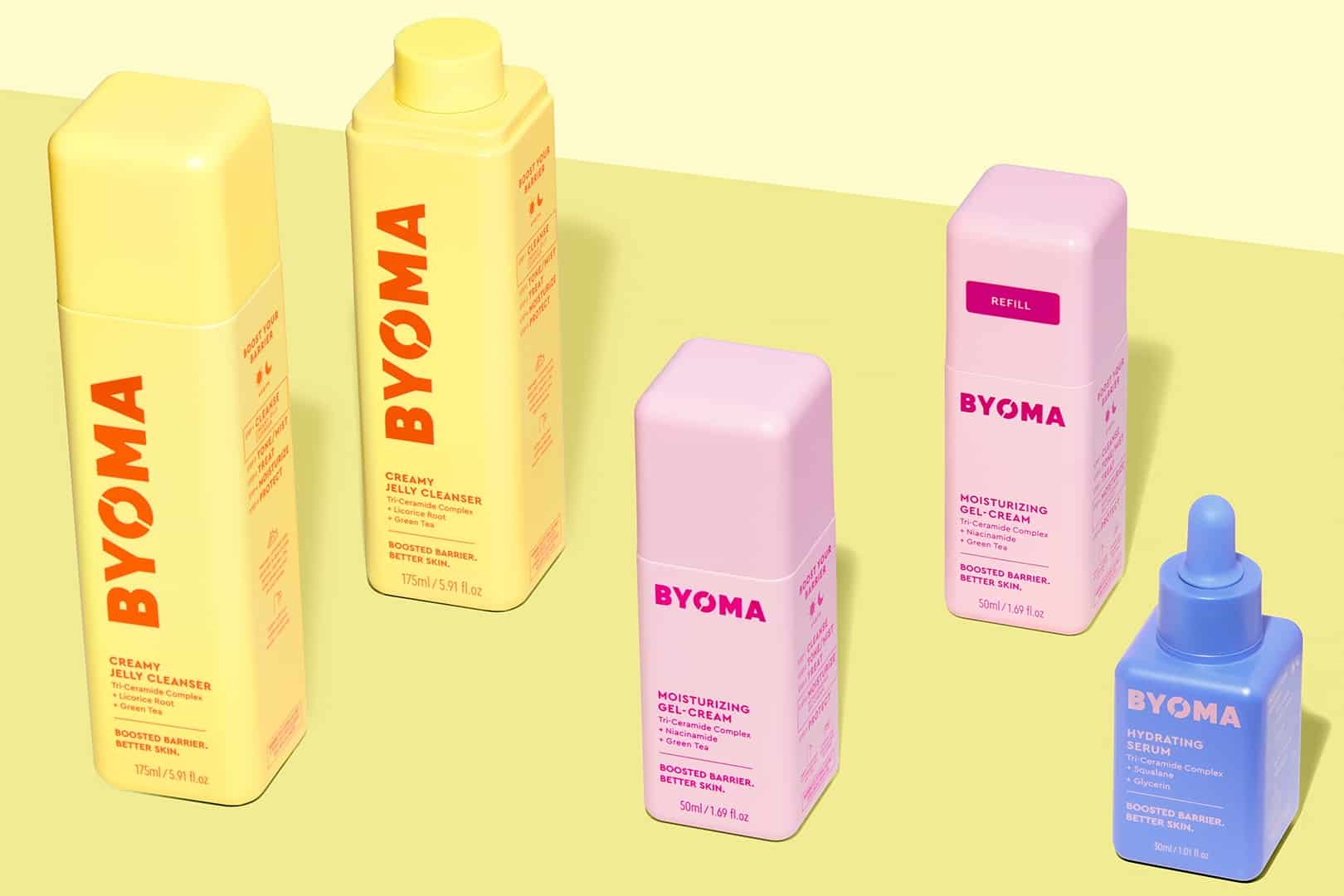
Amanda G
Some of these bands have great styles, however, they don’t breathe, they don’t have needed arch support. If you have ever worn plastic shoes, did you suffer from fungus. It is a real thing. Oh, and not many have any heal height as flats are not good for most feet. A foot doctor will tell you that.